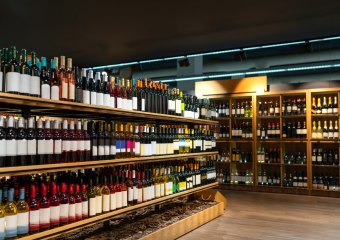Boutique Wine Shops: The Heart of Local Wine Culture
Boutique wine shops are swiftly becoming the cornerstone of wine culture in communities around the globe. Rather than pushing mass-market labels that dominate supermarket shelves, these specialized stores emphasize quality, uniqueness, and a closer connection to the winemaking process. For the discerning enthusiast or the curious newcomer, boutique wine shops open a gateway to a world of undiscovered vines, offering flavors that challenge the palate and stories that enrich the drinking experience.
Why Boutique Wine Shops Are Gaining Popularity
The rise of boutique wine shops can be attributed to several key factors. Firstly, consumer trends are showing a shift towards authenticity and craftsmanship. Wine lovers are increasingly seeking out unique and artisanal wines that are not available in larger retail chains. This desire for exceptional and limited-production wines has made boutique wine shops an attractive option.
Secondly, there is a growing interest in supporting local businesses and economies. Boutique wine shops often stock selections from small-scale, local winemakers, thus fostering community ties and offering customers a taste of their own region’s soil and climate. This local focus not only helps to reduce the carbon footprint associated with transporting goods but also promotes biodiversity as vintners practice sustainable and often organic viticulture.
Finally, the personalized service provided by boutique wine shops is incomparable. These establishments are typically staffed by knowledgeable enthusiasts who are passionate about wine. They can offer customers detailed information about the origin, vineyard practices, vintage specifics, and tasting notes that are often lost in larger retail environments.
Exploring the Unique Offerings of Boutique Wine Shops
Stepping into a boutique wine shop is an entirely different experience from visiting a large grocery store with a wine aisle. The very environment invites curiosity, with meticulously organized shelves, careful lighting, and sometimes even the faint aroma of oak barrels. Each bottle carries its own narrative, meticulously conveyed by staff who have often met the winemakers personally and visited the vineyards.
Moreover, boutique wine shops frequently host tasting events, winemaker talks, and wine pairing workshops, providing an educational angle that enhances the customer’s purchase decisions and overall appreciation of wine. These interactions make wine shopping an engaging and enlightening experience, encouraging a deeper understanding of wine as an agricultural product as well as a beverage.
The Impact of Boutique Wine Shops on Local Economies
Boutique wine shops have a notably positive impact on local economies. By prioritizing wines from nearby regions, these shops help sustain small vintners who might otherwise struggle to compete in the broader market. In addition to economic advantages, this support helps preserve local winemaking traditions and innovations, which are crucial for the diversity of the wine industry at large.
Local wine shops also contribute to the vibrancy of the community, becoming gathering spots for those who share a passion for wine. This creates a sense of community among residents, making neighborhoods more lively and interconnected.
Challenges Faced By Boutique Wine Shops
Despite their appeal, boutique wine shops face significant challenges. The dominance of big-box retailers and online giants, who can afford deep discounts and extensive advertising, poses a continuous threat. Furthermore, the intricate web of alcohol distribution laws in many regions can complicate operations, especially for shops that wish to import and sell international wines.
The Future Outlook
The trend towards personalized consumption and the appreciation of artisanal products suggest a bright future for boutique wine shops. As more individuals seek out unique, high-quality experiences and products, these small businesses are well-positioned to cater to this growing demographic. Moreover, as community-focused living becomes more mainstream, boutique wine shops will likely play a crucial role in defining local culture and preferences.
In conclusion, boutique wine shops are more than just retail spaces; they are educational centers, community hubs, and significant contributors to the local economy. For the wine enthusiast, they offer a portal to a world of flavor and discovery, making each visit a journey rather than just a purchase.





